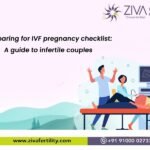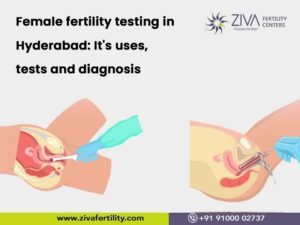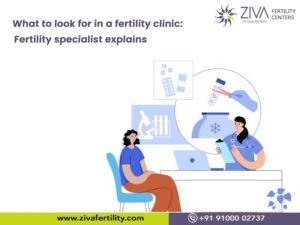Assisted Reproductive Technologies has been a boon to couples having conception issues. Out of all the ART techniques, the most successful and effective fertility type of (ART) procedure is In Vitro Fertilization (IVF). These are the best innovative procedures against infertility. IVF is a compilation of treatments to help with fertility, prevent genetic issues, and aid a couple in conceiving a child. Forty years ago, when it debuted, the procedure was heavily criticized, but now IVF centres are present in metropolitan, urban, and semi-urban areas all over the world. To realize how popular IVF is, the stats are sufficient as there have been approximately 2.5 million IVF treatment cycles carried out annually, resulting in more than 500,000 deliveries.
Simply understand, in an IVF, mature eggs are retrieved from ovaries and fertilized with the sperm of the partner or with donor sperm in a laboratory. The healthy fertilized egg is then transplanted into the female’s uterus. It takes around three weeks to complete an IVF cycle. But some couples undergo these procedures in separate steps. Then the process can sometimes take longer.
What makes IVF Successful?

The stats above show that IVF is one of the most sorted out ART procedures and what makes it the most successful ART procedure. Let us try and understand.
Fertility Drugs: IVF treatment starts with administering fertility drugs into the woman’s body which helps in releasing more eggs. These IVF medications are aimed at increasing the hormone levels in a woman’s body. The increased hormonal level allows for multiple ovarian follicles to grow each cycle. The medications also aid in the growth of the eggs inside the follicles. Since the development and release of eggs are controlled via medication, it increases the chances of fertilization and the resulting embryos.
IVF works with fewer sperm: In men with low sperm count, natural conception is an issue. For natural conception to be successful below are the required qualities in a sperm:-
- Total sperm count
- Sperm motility (the ability of the sperm to move)
- Morphology (shape of the sperm).
For natural conception, a higher number of sperm are needed owing to the distance it must travel to meet with the one potential egg. So if there are fewer sperm or if they do not move properly, they won’t be able to contact the egg and fertilize it. In IVF, since fertilization happens in a lab, a lower number of sperm are sufficient. If that does not work, IVF works perfectly well with donor sperm. Using of donor sperm has to be worked out beforehand, and a mutual consensus must be arrived at.
Female Infertility Issues: For a woman to naturally conceive, the entire reproductive system has to be healthy. However, an IVF procedure bypasses many such issues. It is especially true if women have blocked fallopian tubes, PCOS, endometriosis, or uterine issues. Any anatomical or structural abnormalities are also overcome.
Antibodies issues in men: In some cases, there are antibodies develop in the sperm, especially after a vasectomy. In some cases, women develop antibodies to the male sperm. Either of the antibodies work against fertility. Since in an IVF, the antibodies have less time to bind to or attack sperm, IVF is more successful. For https://zivafertility.com/male-fertility-treatment-in-hyderabad-at-ziva-fertility-clinic/male infertility, ICSI (Intra-cytoplasmic sperm injection) can be used. This is an advanced procedure where healthy sperm is injected directly into the egg. ICSI results in even higher fertilization rates.
Healthy Embryos: The embryologist can carefully monitor the health of the woman’s eggs and of the fertilized embryos before transferring them to the uterus. During the IVF procedure, PGD (pre-implantation genetic diagnosis) and PGS pre-implantation genetic screening can test the embryos for specific genetic disorders or screen embryos for any chromosomal abnormalities. So the embryologist can identify the healthiest and strongest embryos which gives the best chance for them for their survival.
How to make IVF more successful?
There are many steps involved in the success of an IVF, and it should be done with proper timing and accuracy. All elements discussed below significantly influence the treatment’s outcome, i.e. a healthy live birth. In an IVF treatment, there are emotional, physical, and financial aspects. Hence, the couple should take all precautions to affect a healthy outcome. The probabilities of a successful IVF treatment depend on the following conditions.
Age: In the age group of 24 to 34 years, women have the highest IVF success. After the age of 40, the success rate drops. Quality of the egg, sperm, and embryo are biological factors affecting IVF success rates.

History of Previous Pregnancy: If the couple had an earlier successful pregnancy, then there is a higher success with In Vitro Fertilization. But if there is a medical history of multiple and/or recurrent miscarriages and fertility-related issues could mean a more difficult IVF.
Proper Embryo Transfer: Embryo transfer is a crucial step in an IVF process. Creating a healthy embryo is just not sufficient, but it should be successfully implanted in the uterus. Proper timing and even biological factors can improve IVF success.
Lifestyle Factors: For successful IVF, a patient should stop smoking and drinking alcohol at least 3 months before the actual IVF procedure. There are many studies which show that smoking and drinking alcohol decrease the chances of IVF success. Healthy weight is another contributing factor since it affects how hormones and fertility drugs are processed by the body.
IVF’s popularity is because of the many obstacles that it can overcome. When you visit ZIVA clinics for an IVF, we will start with counselling. All the aspects of IVF are explained in detail, along with financial requirements. After proper analysis and testing, we lay down the next steps. Please do visit our website https://zivafertility.com/ or contact us at +91-9100002737, +91-9392834024, and Info@zivafertility.com.
















